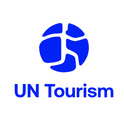“Words Alone Will Not Save Jobs”: UNWTO Leads Call For Firm Action By Governments To Support Tourism Recovery
The Global Tourism Crisis Committee has united behind the World Tourism Organization's rallying cry for governments to "go beyond words" and begin taking decisive action to safeguard the millions of jobs under threat as a result of the COVID-19 pandemic.
The Crisis Committee was convened by the World Tourism Organization (UNWTO) in response to COVID-19. With tourism among the worst affected of all major economic sectors, the United Nations specialized agency for tourism also warns of the social and development toll the economic impact might have.
UNWTO is taking the lead in ensuring governments do all they can to safeguard livelihoods and shield the most vulnerable members of society.
UNWTO Echoes Wider Call for Action Not Words
In the third meeting of the Committee, UNWTO urged members to increase pressure on world leaders to rethink tax policies and employment policies relating to tourism and to help make sure businesses survive to help drive wider recovery efforts.
This call to action comes as decision makers come under mounting pressure to take concrete steps to help combat COVID-19. Drawing up financial and economic responses has been the central focus of the Spring Meetings of the International Monetary Fund and the World Bank this week, while the European Commission has been enhancing political cooperation within the European Union. The Tourism Crisis Committee meeting was also held against the backdrop of the Saudi Presidency of the G20 calling on governments, private organisations and philanthropists to contribute a collective US$8 billion to address the existing financing gap and properly address the pandemic.
UNWTO Secretary-General Zurab Pololikashvili said: "This crisis has shown the strength of solidarity across borders. But nice words and gestures will not protect jobs or help the many millions of people whose lives are dependent on a thriving tourism sector. Governments have an opportunity to recognize tourism's unique ability to not only provide employment but to drive equality and inclusivity. Our sector has proven its ability to bounce back and help societies recover. We ask that tourism is now given the right support to once again lead recovery efforts."
Looking Beyond a Locked Down World
The call to action comes as UNWTO reports on the extent to which COVID-19 has brought global tourism to a standstill. The UNWTO "Travel Restrictions" report notes that 96% of all worldwide destinations have introduced full or partial restrictions since the end of January. Secretary-General Pololikashvili has also called on governments to lift such restrictions as soon as it is safe to do so in order that societies are once again able to benefit from the social and economic benefits tourism can bring.
Looking ahead, the Global Tourism Crisis Committee is working on a Recovery Plan for the sector. This will be centred around open borders and enhanced connectivity while also working to raise consumer and investor confidence.
To help countries get back to growth, UNWTO will soon be launching a new Recovery Technical Assistance Package. This will enable its Member States to build capacity and better market and promote their tourism sector in the challenging months ahead.
Tourism Speaking as One
UNWTO formed the Global Tourism Crisis Committee to join every part of the tourism sector as well as leading international institutions together to create a united response in order to mitigate the impact of COVID-19 and prepare tourism for recovery. From within the UN system, the Committee includes representatives from WHO (World Health Organization), ICAO (the International Civil Aviation Organization) and the IMO (International Maritime Organization). Joining them are the Chairs of the UNWTO Executive Council and its Regional Commissions. The private sector is represented by members including IATA (the International Air Transport Association), ACI (the Airports Council International), CLIA (Cruises Lines International Association) and WTTC (the World Travel & Tourism Council).
This third meeting benefitted from inputs from the ILO (International Labour Organization) and the OECD, emphasizing the enhanced importance placed on tourism as international organizations respond to COVID-19.
About UN Tourism
The World Tourism Organization (UN Tourism), a United Nations specialised agency, is the leading international organisation with the decisive and central role in promoting the development of responsible, sustainable and universally accessible tourism. It serves as a global forum for tourism policy issues and a practical source of tourism know-how. Its membership includes 166 countries, 6 territories, 2 permanent observers and over 500 Affiliate Members from the private sector.
Media enquires: [email protected]
UN Tourism Communications Department
+34 91 567 8100
UN Tourism
